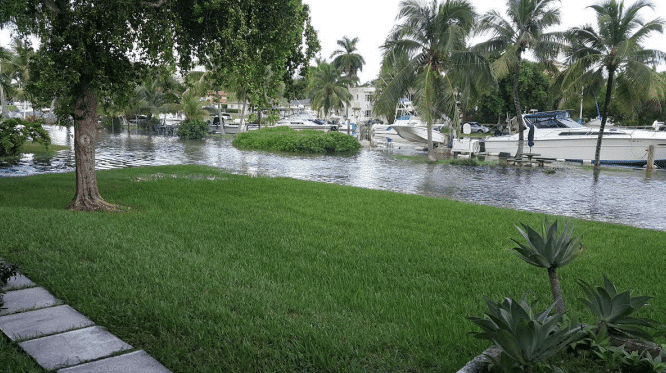The smelly side of climate change
By Dawn Stover | January 16, 2019

More than one in five households in the United States uses a septic system to treat household wastewaster. Florida’s Miami-Dade County has tens of thousands of these systems, and more than half are already malfunctioning during storms or wet years, according to a recent study. That can turn a front yard into what the Miami Herald describes as a “poopy swamp.” In a changing climate, the problem is only getting worse.
Septic tanks work by discharging liquid effluent into underground channels, where it filters down through soil. But in places where sea-level rise is pushing up groundwater levels, there’s not enough dry dirt to absorb the effluent, so it backs up into yards and homes.
Coastal areas aren’t the only places where climate change is wreaking havoc on septic systems. In Minnesota, for example, frozen septic systems are causing unexpected problems for homeowners. “The cause is a dramatic long-term decline in insulating snow early in November and December,” the Star Tribune reports. “Combined with still-freezing conditions, that drives the frost line deep underground—well below septic pipes and drain fields.”
Only rural and suburban residents rely on septic systems, but that doesn’t mean urban dwellers have nothing to worry about. Many places are experiencing heavier rainfalls and increased flooding as a result of global warming, which can overwhelm water treatment systems. When that happens, sewage bubbles out of manholes, flows down streets, runs off into nearby rivers or bays, and can potentially contaminate drinking-water sources.
After Hurricane Irma in 2017, the sewer authority in Miami-Dade County reported releasing 6 million gallons of partially treated wastewater into Biscayne Bay, home to the nation’s only underwater national park. That’s a volume equivalent to every resident of Miami flushing the toilet eight times.
Publication Name: Miami Herald
To read what we're reading, click here
Together, we make the world safer.
The Bulletin elevates expert voices above the noise. But as an independent nonprofit organization, our operations depend on the support of readers like you. Help us continue to deliver quality journalism that holds leaders accountable. Your support of our work at any level is important. In return, we promise our coverage will be understandable, influential, vigilant, solution-oriented, and fair-minded. Together we can make a difference.
Keywords: Miami-Dade, septic systems
Topics: Climate Change, What We’re Reading
















Remind me again why ANYONE would want to live in Florida?